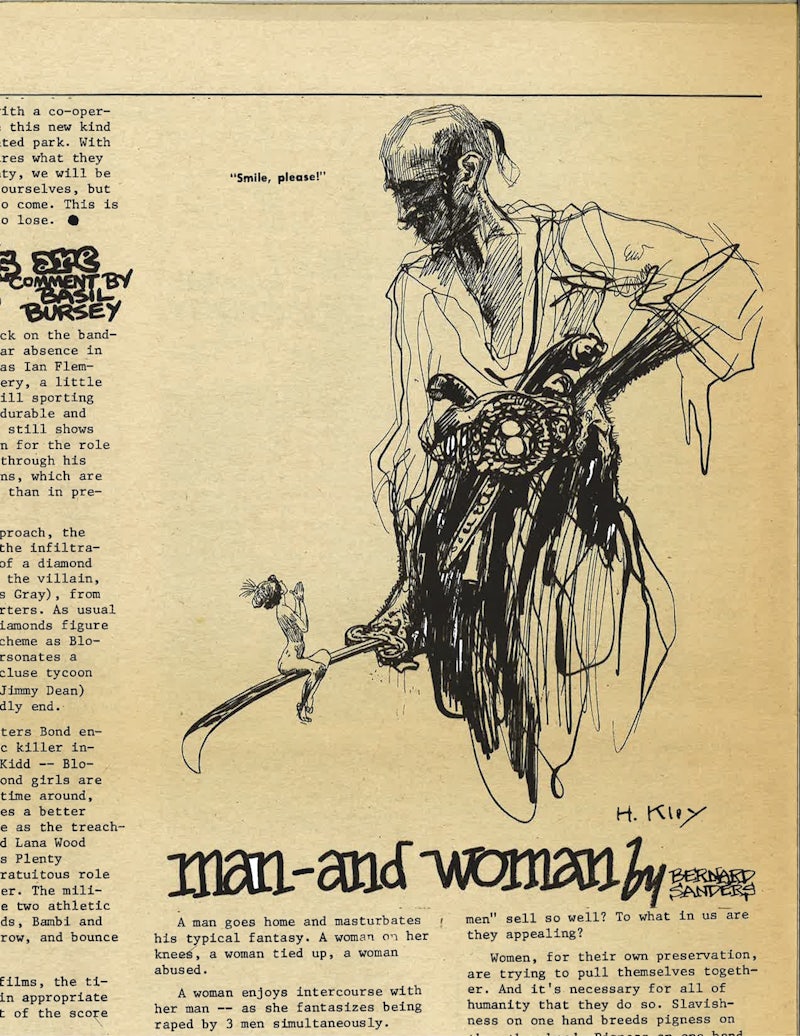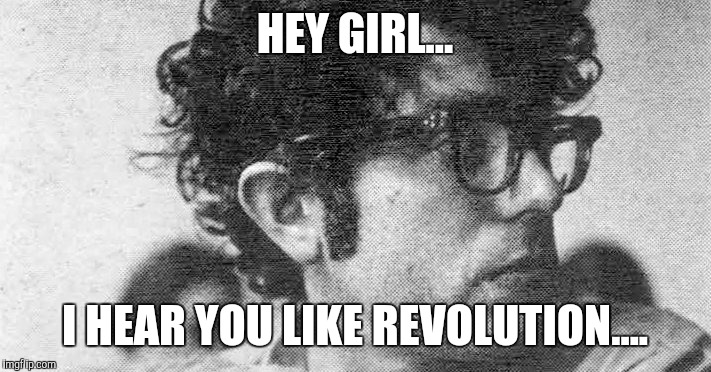One hot night in July 1972, I walked into my family’s kitchen to see my mother brandishing a broom at a skinny man who had his head stuck deep inside our refrigerator.
“You get out!” my mom yelled, hitting the man on his skinny ass. “Out, out!” Under her tan skin, my mother’s face was red with indignation. We didn’t have much in our fridge, but my mom would fiercely defend it. The man pulled his head out of the fridge, dropping the food on the shelf. His hair was curly; a cherub’s full-bodied curls framed his startled face. Chagrined, he loped off to the other apartment housed in my family’s converted two-room schoolhouse in Huntington, Vermont, the site of a late-night mock-up session for The Vermont Freeman, the alt-weekly my parents published.
Years later, I’d find out that man was Bernie Sanders.
Standing on the waterfront park of Burlington, Vermont, on Tuesday, May 26, 2015, Sanders announced his candidacy for president. Shortly thereafter, Mother Jones published “How Bernie Sanders Learned to Be a Real Politician,” an article detailing Sanders’ decades-long shift from scruffy radical to hirsute politician. While the article delineates much of Sanders’ early history, including his time with the doomed Liberty Union party, his multiple failed political bids, and his hardscrabble hippie-adjacent life, the media fixated on one element: The “50 Shades” satiric erotica that Sanders wrote for the Freeman in October 1972.

“A woman enjoys intercourse with her man,” goes the most quoted portion of the essay, “she fantasizes being raped by three men simultaneously.” Called “Man—and Woman,” the short piece originally appeared in the “China” issue of the Freeman. You’d likely imagine that an underground Vermont newspaper would have a hard time drumming up enough copy to fill a China issue—and you’d be right. The piece is bad, but it speaks to the gendered zeitgeist of the time, the ’70s confusion about who humans are when we can’t rely on the gender roles we grew up in with. It’s a confusion that lingers, suggesting that though his prose is execrable, Sanders is posing questions that were valid for the time, questions that the anger of Men’s Rights Activists and fourth-wave feminist divisions suggest are still relevant.







You need to be a member of REAL CONSERVATIVES to add comments!
Join REAL CONSERVATIVES